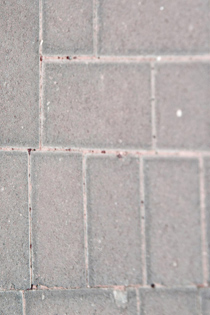Isabelle Borsus et Grégory Pogorzelski | 11.09.2020
In this article, we would like to contribute to the drawing of the contours of enchantment as a concept by confronting it to the scene of tabletop role playing game. To this end, we will defend the hypothesis that role playing game could be approached as an enchantment device (dispositif d’enchantement), itself considered as a « potential space » (Belin, 2002) framing and encouraging the emergence of an extra-daily experience. At first, we will discuss the environment of the [...]
Meddy Escuriet | 13.08.2020
This article aims to return to the conceptual framework and methodology used to individually objectify, while socially analysing, the relationship to space of people who have suffered acquired brain damage. Moving from a state where they were professionally and socially integrated to a state where they must learn to live with their functional limitations, the life accident that these people suffered has totally redistributed the cards of their existence and redefined the relationships they have with space and society. [...]
Alexis Gumy, Pauline Hosotte et Marc-Edouard Schultheiss | 17.07.2020
While accessibility conditions have never been so sound, the social injunctions that materialise at work, at home or during leisure time can lead to various forms of vulnerability with respect to time. This article supports the hypothesis that time vulnerabilities, when enhanced by a situation of high parenting responsibility or automobile dependence, encourage households to implement unique mobility practices. These practices, termed “emerging” in this research, would allow them to keep the intense pace of their daily mobility project. [...]
Joseph Cacciari | 17.07.2020
What do the approaches in terms of "Mobility Biographies Research" and "Travel Socialization Studies" teach us about mobility choices over biographical trajectories? Particularly widespread in recent years, research using one or the other approach has focused on the daily choices of spatial mobility of individuals. These two orientations share the objective of wanting to document the mechanisms of learning and changes in behaviour in this area throughout the biographical trajectories. Research claiming to be in one or the [...]
Lucien Delley, Luca Pattaroni et Pascal Viot | 10.06.2020
This article questions the notion of effervescence in a crowd gathered during festive or sporting events. Starting from survey of the various theoretical construction of the crowd as an object of knowledge, we criticize conceptions that consider it as an irrational mental fusion and focus on what we propose to call the "public conditions" of the crowd, manifested by the emergence of accountable collective behaviours. Beyond the risks that are generally associated with it, a crowd is an opportunity [...]
David Sayagh | 01.05.2020
Based on a doctoral thesis, this article aims to explore how to capture and report on the differentiated socializations that lead to inequalities in cycling mobility opportunities. This ambition has led to special methodological precautions (against the bias linked to social distance, memory failures, conscious omissions, the "sex of the survey", etc.) and to develop an analysis tool whose main advantage is its heuristic ability to reveal gendered dispositions underlying the strengthening of unequal opportunities.
Finally, the approach justifies the [...]
Chiara Kirschner | 22.04.2020
L’article mobilise la notion de rythme pour analyser la relation qui se noue entre l'individu et son environnement dans la pratique spatiale mobile de l'itinérance récréative, qui aboutit souvent, dans le cas d’itinérances longues (plusieurs semaines/mois) à une décision de transformation de sa trajectoire de vie une fois rentré chez soi. L’expérience sensorielle vécue par les pratiquants, et notamment kinesthésique (sens global du mouvement), qui intègre l’environnement, sert de base pour une nouvelle conception du rythme en tant qu’outil [...]
Le coronavirus au prisme du néonaturalisme
Jacques Lévy | 18.04.2020
Within a pandemic process where unknown and novel realities can be numerous, some actors cannot help saying: “I told you so”. Among them, activists of the neo-naturalist current are seeking at all costs to connect this event to their common speeches. Inside this movement, Dominique Bourg et Bruno Latour have set themselves up as prophets of immanence. Immanence is a new religion that replaces ancient transcendent gods with a powerful, moralizing Nature and reduces the humans to weak and [...]
Contribution à une socio-anthropologie de l’enchantement à partir de l’étude comparée du « Gamarada » et de la « Communication animale intuitive ».
Robin Susswein et Edgar Tasia | 07.04.2020
Some emotionally intense “wonderful” experiences, which are particularly difficult to qualify by those who experience them, have been studied by sociology and anthropology as “enchantment experiences”. How to qualify this type of experiences? What circumstances can contribute to their emergence? Based on the ethnographic study of two initiatory practices (the “Gamarada” and the “Animal Intuitive Communication”), the authors underline the benefits and the limits of the heuristic model of the "technology of enchantment" built by Halloy and Servais. This [...]
Jean-Nicolas Fauchille | 20.03.2020
Une société juste. La réunion des termes justice et espace ne va pas de soi. En effet, les théories de la justice a-spatiales étaient considérées jusqu’à présent comme les seules auxquelles on avait recours pour répondre à la question : qu’est-ce qu’une société juste ? Savoir ce qu’est un espace juste ne faisait pour ainsi dire pas [...]


